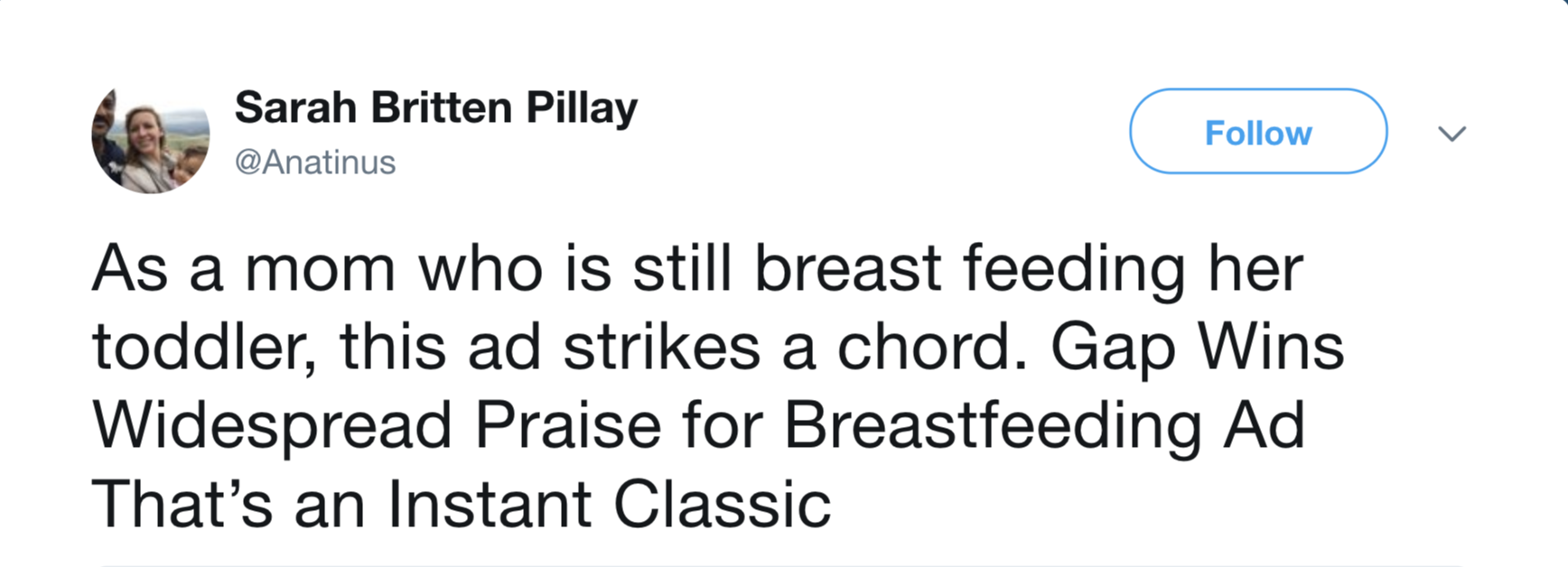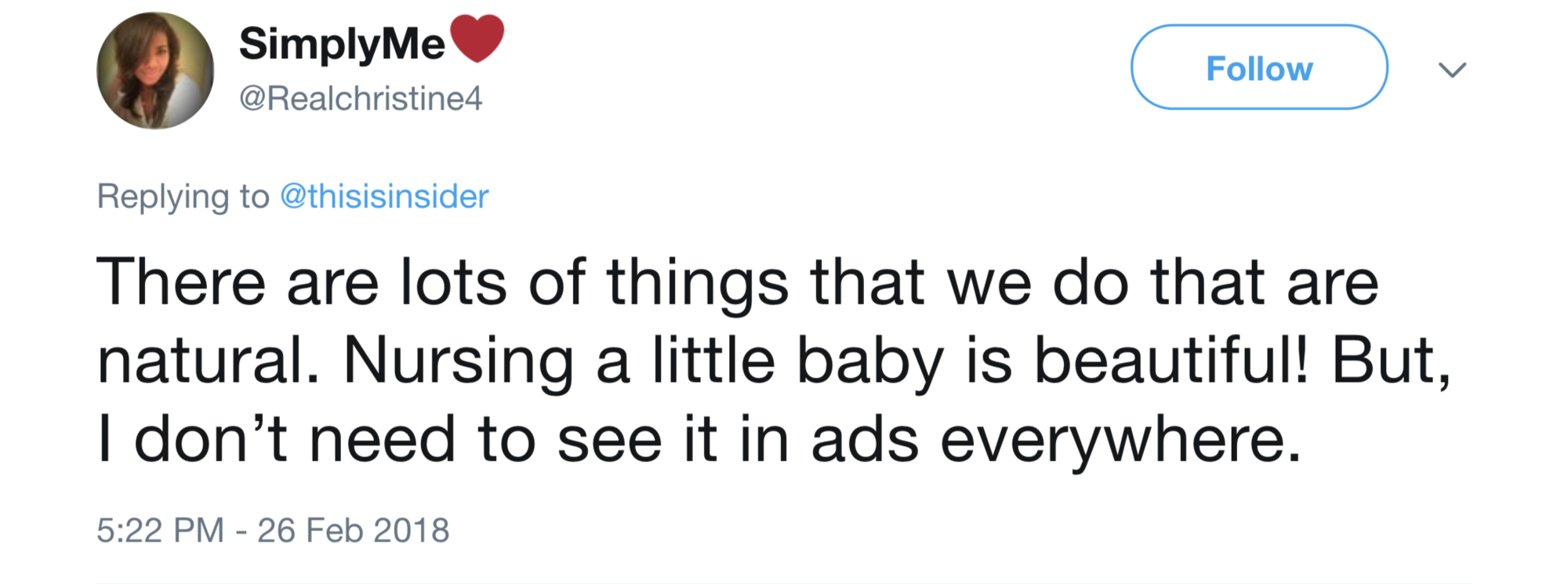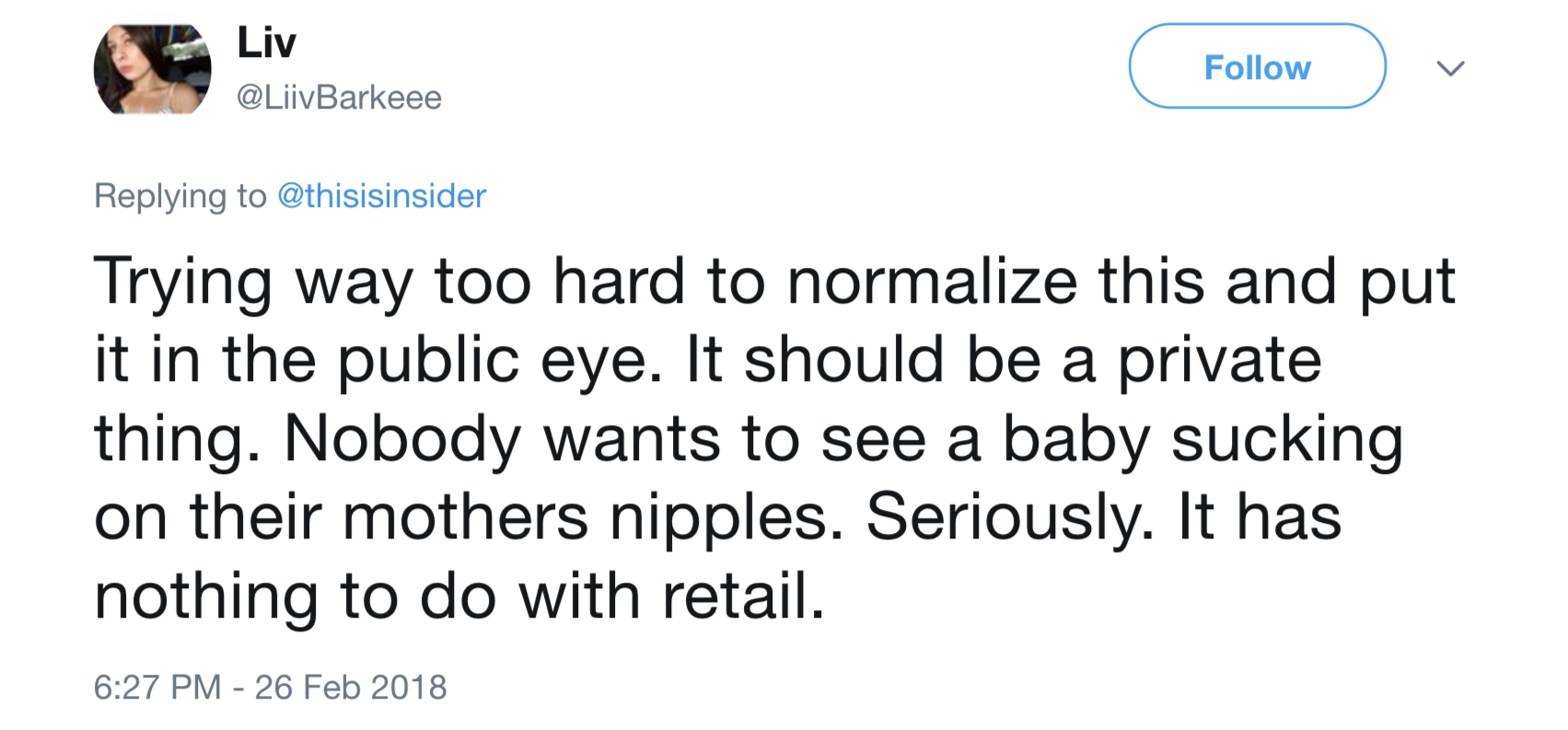
For years, moms everywhere have been working hard to normalize the act of breastfeeding. Something so seemingly simple is often a topic of huge controversy that draws sharp criticism, leaving breastfeeding moms feeling shamed, underrepresented, and forgotten. But Gap just garnered a lot of attention for doing the exact opposite. One of its most recent ads features a mom actually in the act of breastfeeding her baby, and people are finding many reasons to fall in love with it.
The ad, originally posted on the company's Instagram, is part of a collection.
Gap's new "Love by GapBody" is a collection of cozy, comfortable intimates and lounge clothes. The series is supposed to feature all types of women in various states of relaxation. And while all the images are nice, the one featuring a breastfeeding mom is pretty groundbreaking.
More from CafeMom: Mom Found 'Decomposing' Forgotten Bandages in Her Vagina 7 Weeks After Giving Birth
The photos feature a mother and her toddler-aged son. In the first shot, she is simply holding the little boy in her arms. But in the second, she is actually breastfeeding him.
Adaora Akubilo, the mother in the shoot, told the Chicago Tribune that she and her son were booked to model loungewear and that the breastfeeding moment was organically captured. In the middle of the shoot, the 20-month-old needed to nurse, and Akubilo saw no need to remove herself from in front of the camera. "I'm so comfortable just nursing my son anywhere," she said. "If my son needs to nurse, I'm going to nurse him."
The photographer went ahead and captured the moment, and when the company decided to actually use the photos of her breastfeeding, the mom was incredibly delighted. "I was so happy," she said. "I felt it was affirming."
Tons of moms on the Internet found the ad just as inspiring as Akubilo did.
Many of them went to Gap's social media accounts to thank and commend the company for actually taking the steps to normalize breastfeeding with its photos.
Others recognized the significance of the featured mom being a black woman.
Black moms are statistically less likely to breastfeed than white moms, and many black advocates believe that the lack of representation in the breastfeeding world contributes to this. A huge company showcasing a black woman breastfeeding in a national campaign means a lot to the moms out there who feel left behind.
Some pointed out that the use of an older child was even more groundbreaking.

… especially considering the fact that many moms who breastfeed for an extended amount of time get shamed because their kids are "too old."
Of course, there were some haters too.

Some were adamant that they didn't want to see photos of a breastfeeding mom plastered in ads "everywhere."
And others said that breastfeeding is already "normal" and doesn't need to be promoted.

One Twitter user went so far as to call Gap's ad "progressively unnecessary."
Ultimately, the hate the ad received pales in comparison to the overwhelming amount of love it got.
Moms, dads, even people who aren't parents have spoken out to thank the company for taking a risk. And while many do acknowledge that the ad was created for marketing purposes, they also say that the intent behind the photos doesn't overshadow their incredible impact.
More from CafeMom: Yes, Chrissy Teigen & John Legend 'Still' Carry Their Daughter … What's the Problem?
In only two images, Gap has managed to represent a wide-spanning array of groups: moms who breastfeed, moms who practice extended breastfeeding, moms of color, and moms who fit into all those boxes. Gap is one of the first companies to create a campaign that actually makes breastfeeding moms feel supported, and if there is anything moms need, it's the knowledge that someone — even if it's "just" a company — is rooting for them.
Adaora Akubilo says that she is extremely proud of the campaign and is pleased to see that it has so many admirers. She is also happy to have contributed to helping other moms feel supported in their breastfeeding journeys. "I don't want women to feel shamed," she told the Chicago Tribune. "It's so important to encourage mothers."




